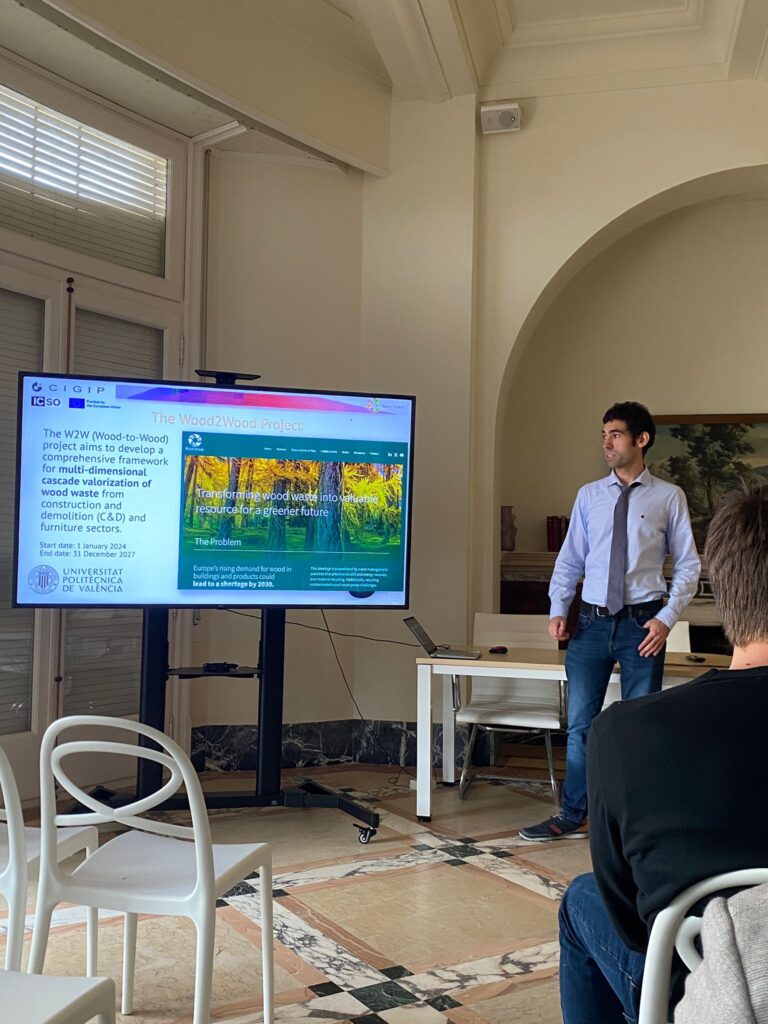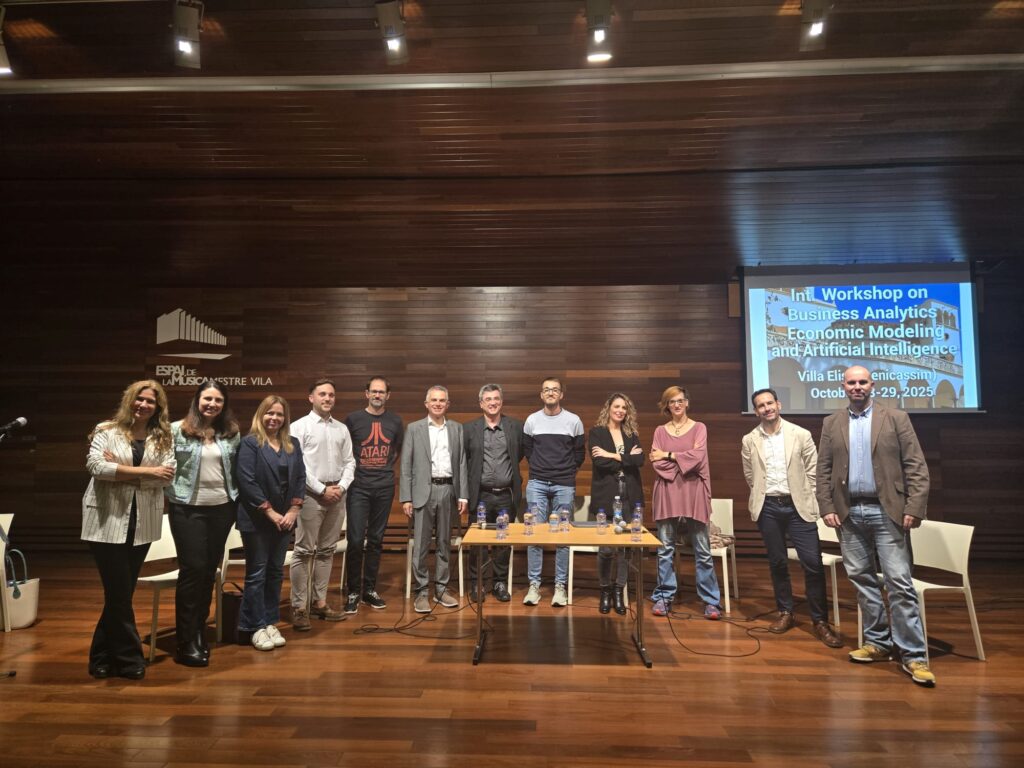
On October 28, W2W project consortium partner CIGIP-UPV co-organised and participated in the BenicassimTech International Workshop in Benicàssim, Spain to present their latest work on “Advancing the wood Supply Chain Optimisation toolkit: Enhanced Capabilities and Integration”. Javier A. Cuartas Micieces from CIGIP-UPV presented the improved version of the Supply Chain Optimization (SCO) toolkit as part of the W2W project.
The workshop, co-organised with the Benicàssim City Council, the BAI EURO working group, and the Decision Science Alliance, brought together specialists from academia, industry, and policy to discuss how artificial intelligence, data analytics and economic modelling are driving the digital transformation of business, economic and social systems.

In W2W, CIGIP-UPV is developing the Supply Chain Optimization (SCO) toolkit for secondary materials to manage the process of recycling wood along the supply chain. As part of the workshop, CIGIP-UPV introduced the updated toolkit with new functionalities, refined optimisation models, and extended integration capabilities across different stages of the wood supply chain. With the system’s support, decision makers can implement strategic and operational tasks while addressing economic and environmental objectives.
Supply chain challenges are not easy to solve. The SCO toolkit provides a pathway to address interconnected optimisation problems fundamental to efficient and sustainable wood supply chain management.
For example, the toolkit makes available these following six features for better management:
- Vehicle routing
- Supply–demand matching
- Transport mode selection
- Inventory control
- Network flow optimization
- Facility location planning
What is new in the updated version of SCO toolkit?
- Enhanced coordination among the abovementioned six domains;
- Better capturing their (domain) interdependencies and cumulative effects on overall performance;
- Better handling of uncertainty, seasonality, and product quality over time;
- Modular integration with external data sources for flexible regional adaptation;
With the SCO toolkit, the project intends to support smarter, more sustainable decision-making across the entire wood supply chain.
The discussions at the CIGIP-UPV booth were centered around three topics, namely the variety of optimisation algorithms used in the toolkit, opportunities to improve adaptation to specific use cases and the potential integration of the inventory optimisation with demand forecasting tools. At least 50 visitors, a mix of academics, industry professionals and local policymakers, stopped by to interact with the Wood2Wood team led by CIGIP-UPV.

As part of the event, CIGIP-UPV attended several insightful sessions linking artificial intelligence (AI) and decision science with real-world industrial challenges.
